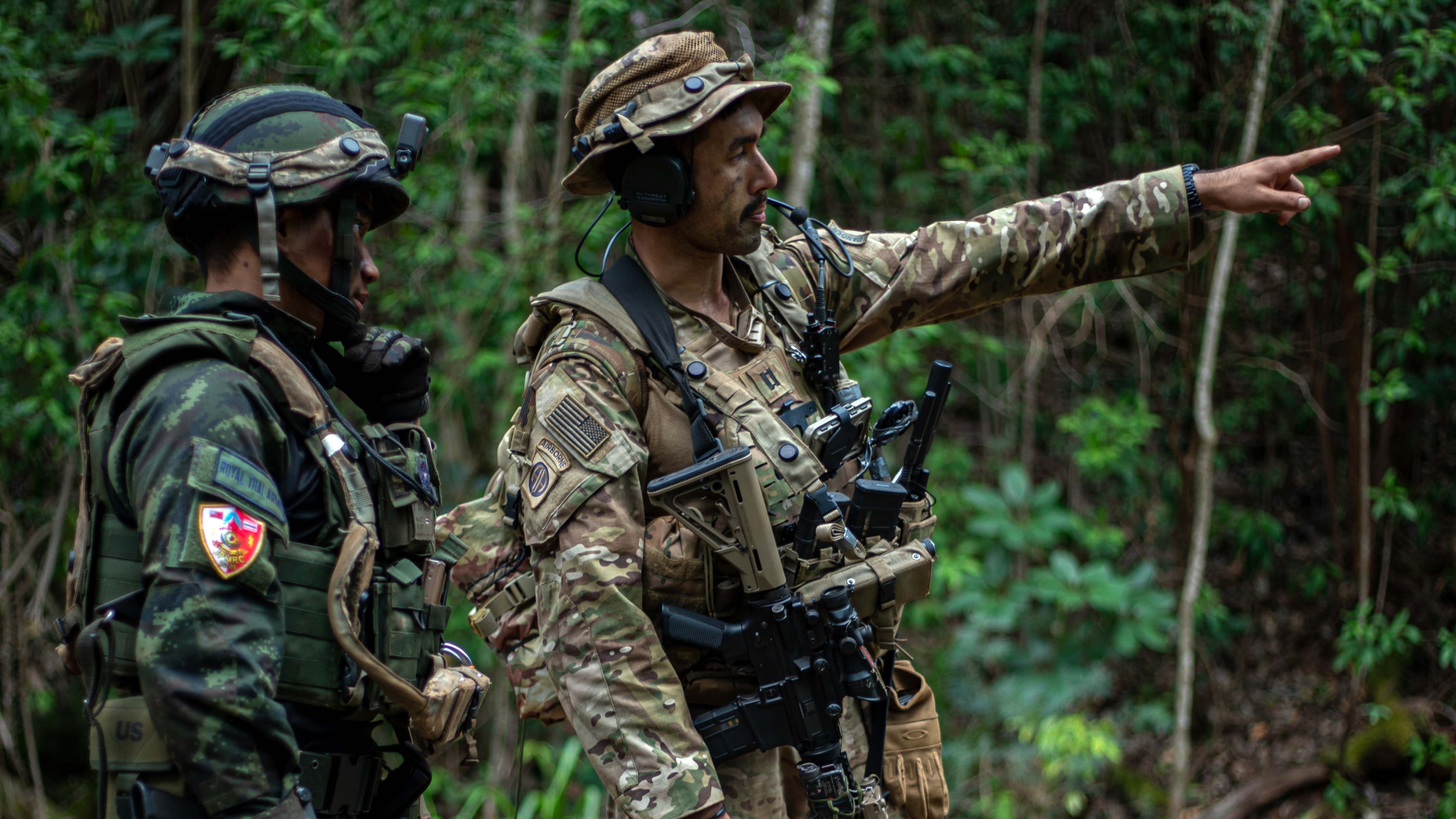GAO: Special Operators Need More Language Training
GAO: Special Operators Need More Language Training

More training and accountability could be needed after a new report by the Government Accountability Office found many special operations troops are not meeting language proficiency goals.
“The Army and Marine Corps Special Operations Commands have issued foreign language proficiency and training standards and provided resources and incentives to improve foreign language skills,” the report states. “However, GAO found that from fiscal years 2018 through 2022, most Army and Marine Corps Special Operations Forces (SOF) units did not meet foreign language proficiency goals.”
The report analyzed data from the Army and Marine Corps, including the average number of annual foreign language training completed by service members; interviews with officials; and guidance and command-sponsored studies from 2004 to 2023 on special operations foreign language training.
Language skills are vital for special operations troops, including Army Special Forces soldiers, who frequently deploy, work and train with foreign militaries.
Though Army Special Operations Command guidance indicates that 80% of personnel within a unit or formation should meet a minimum level of foreign language proficiency, most Army units are falling short, the GAO report found.
“We found that no more than three of the eight active-duty Army SOF formations, under the control of 1st Special Forces Command, had 80 percent of personnel achieve the minimum proficiency goal” for their foreign language between fiscal years 2018 and 2022, the report found.
Army special operations personnel also are not meeting their annual training goals, the report found.
“Less than half of Army SOF personnel who have a foreign language training requirement recorded completing any foreign language sustainment and enhancement training each year from fiscal years 2018 through 2022,” the report found.
Additionally, Army Special Operations Command does not “routinely assess if foreign languages assigned to SOF are relevant to the partner forces and local populations they communicate with on deployments,” the report found.
Though Army special operations personnel who typically deploy to Central and South America said that they could use their Spanish language skills “to build rapport, perform briefings and conduct training,” soldiers assigned to speak Russian indicated that they were in countries where “speaking Russian is culturally offensive,” limiting their language use, according to the report.
Moving forward, special operations leadership should prioritize their troops’ foreign language training hours and language sustainment, the GAO report recommends.
“By ensuring that unit commanders monitor and report the extent to which SOF personnel are completing required foreign language sustainment and enhancement training hours to command officials, the Service Component Commands could clearly communicate to unit commanders and SOF personnel that completing sustainment and enhancement training is a priority,” the report states.
The report is available here.

